Faculty Mentors & Research Interests
| Name and Degree, Department and Research Interests | ||
 Dr. Raghu Amachawadi, BVSc, MS, PhD Dr. Raghu Amachawadi, BVSc, MS, PhDEmail
Dr. Raghu Amachawadi’s research interests are in antimicrobial resistance among gut commensals and foodborne pathogens of swine and cattle production systems. Specifically, on understanding the mechanisms involved in the propagation and dissemination of antimicrobial resistance and on the role of non-antibiotic alternatives in contribution and mitigation of antimicrobial resistance in gut bacteria, and on microbiome and metagenomics analyses of the gut of cattle and swine. His research interests also include both aerobic and or anaerobic bacterial flora of liver abscesses and its prevention in feedlot cattle. |
||
 Dr. Mike Apley, DVM. PhD, DACVCP Dr. Mike Apley, DVM. PhD, DACVCPEmail
Dr. Mike Apley's research is focused on food animal pharmacokinetics and pharmacodynamics of veterinary drugs. |
||
 Dr. Katsura Asano, PhD Dr. Katsura Asano, PhDEmail
Dr. Katsura Asano studies regulation of protein biosynthesis, yeast genetics and biochemistry, and molecular and cell biology of insects and cancer. |
||
 Dr. Chieko Azuma, DVM, PhD, DACVR-RO, CPIA Dr. Chieko Azuma, DVM, PhD, DACVR-RO, CPIAEmail
Dr. Chieko Azuma's research is focused on investigating the biological effects of radiation therapy and evaluation of treatment response in veterinary patients. She also has interests in palliative care and pain management, and research ethics and compliance. |
||
 Dr. Matt Basel, PhD Dr. Matt Basel, PhDEmail
Dr. Matt Basel’s research is focused on cancer therapy, especially hyperthermia and nanomedicine, and on designing better models for cancer research. |
||
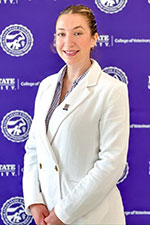 Dr. Eduarda Bortoluzzi, MV, MS, PhD Dr. Eduarda Bortoluzzi, MV, MS, PhDEmail
Dr. Eduarda Bortoluzzi's research focuses on animal welfare and applied ethology of domestic animals. Her previous research aimed to demonstrate the relationship between neonatal behaviors and the health of piglets and calves. Dr. Bortoluzzi also researched novel technologies to identify pulmonary pathologies in necropsied feedlot cattle. Her future lab projects include using artificial intelligence, machine learning, and data analytics to develop new animal welfare metrics. |
||
 Dr. Mary Cain, PhD Dr. Mary Cain, PhDEmail
Dr. Mary Cain studies the neurobiological basis of drug use using a rodent model. |
||
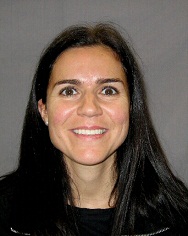 Dr. Natalia Cernicchiaro, DVM MS PhD Dr. Natalia Cernicchiaro, DVM MS PhDEmail
Dr. Natalia Cernicchiaro's research focus is on veterinary epidemiology, food safety, zoonoses and production medicine. Research interests include the application of epidemiological concepts and methods, including multi-level modeling and knowledge synthesis and translation techniques to design, implement and interpret observational and experimental studies pertaining to food safety, zoonoses, arthropod-borne diseases and production medicine. Current research projects include understanding the distribution and determinants of Shiga toxin-producing Escherichia coli non-O157, Salmonella and respiratory disease organisms in cattle and cattle production systems. |
||
 Dr. Kyeong-Ok Chang, DVM, MS, PhD Dr. Kyeong-Ok Chang, DVM, MS, PhDEmail |
||
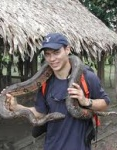 Dr. Lee Cohnstaedt, PhD Dr. Lee Cohnstaedt, PhDEmail
Dr. Lee Cohnstaedt’s research focuses on mosquito-borne zoonotic pathogens such as Rift Valley fever, Japanese encephalitis, and West Nile viruses. He also studies methods to reduce biting midge (culicoides) transmitted epizootic hemorrhagic disease and bluetongue virus transmission on cervid farms. The lab uses both field and lab projects to determine the best methods to reduce disease transmission by mosquito and biting midge disease vectors. |
||
 Dr. Jeff Comer, PhD Dr. Jeff Comer, PhDEmail |
||
 Dr. Steven Copp, PhD Dr. Steven Copp, PhDEmail
Dr. Steven Copp’s research interest is autonomic control of circulation during exercise in health and cardiovascular disease. |
||
 Dr. Elizabeth Davis, DVM, PhD, DACVIM (LAIM) Dr. Elizabeth Davis, DVM, PhD, DACVIM (LAIM)Email
The primary focus of Dr. Elizabeth Davis' research has involved mechanisms of innate immunity in horses. The current series of investigations involves examining the mechanism of immune activation with specific DNA sequences called CpG DNA. She is examining how bacterial DNA induces these responses and which sequences are the most effective at inducing immune activation. The ultimate goal of such investigations will be to use CpG DNA in combination with vaccine antigens so that she can safely and effectively make vaccines more powerful. Investigations will utilize cellular proliferation, cytokine gene expression and molecular cloning and sequencing assays. |
||
 Dr. Santosh Dhakal, BVSc & AH, MS, PhD Dr. Santosh Dhakal, BVSc & AH, MS, PhDEmail
Dr. Santosh Dhakal's lab works on viral pathogens of animal and human health importance, including influenza and SARS-CoV-2. His research focuses on understanding the effect of host-associated factors, including age, biological sex, preexisting immunity, and different comorbidities on viral pathogenesis and immune responses to vaccines. He is also interested in the development of safe, effective and optimized mucosal vaccines against animal and human viral pathogens. |
||
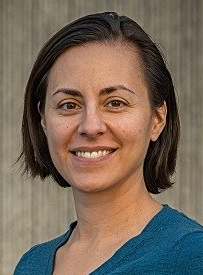 Dr. Maria Diehl, PhD Dr. Maria Diehl, PhDEmail
Dr. Diehl's research program focuses on the understanding of how social stimuli can alter the neural circuits of fear and avoidance to reduce anxiety-like behaviors and subsequently promote resilient behaviors in rats. She uses a several techniques including single unit recordings and optogenetic manipulations in behaving rats. Research in the Diehl laboratory seeks to understand why some individuals can overcome trauma and develop behavioral resilience, while other individuals go on to develop a neuropsychiatric disease, such as post-traumatic stress disorder. |
||
 Dr. Peying Fong, PhD Dr. Peying Fong, PhDEmail
Dr. Peying Fong studies the regulation of sodium, chloride and iodide transport by epithelial cells. |
||
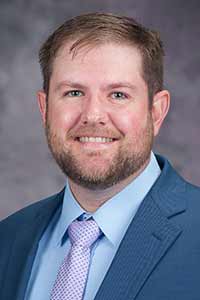 Dr. Scott Fritz, DVM, PhD Dr. Scott Fritz, DVM, PhDEmail
Dr. Scott Fritz studies issues relating to toxicology as it pertains to animals. His research interest is applied veterinary toxicology and he teaches VAP 871Veterinary Toxicology. |
||
 Dr. Brian Geisbrecht, PhD Dr. Brian Geisbrecht, PhDEmail
Dr. Brian Geisbrecht studies Staphylococcus aureus with a multidisciplinary approach including innate immunity, molecular basis of infectious diseases and host-pathogen interactions, and structural biology and molecular recognition. |
||
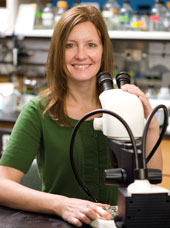 Dr. Erika Geisbrecht, PhD Dr. Erika Geisbrecht, PhDEmail
Dr. Erica Geisbrecht studies formation and maintenance of muscle and heart tissue, biochemistry and molecular genetics of Drosophila, and cell signaling in development. |
||
 Dr. Todd Gunderson, DVM, MS, ACVPM Dr. Todd Gunderson, DVM, MS, ACVPMEmail
Dr. Todd Gunderson studies beef production medicine, dairy production medicine, equine medicine, epidemiology, disease outbreak investigation and small animal emergency medicine. |
||
|
|
||
|
Dr. Lindsey Hulbert's research is focused on the development and validation of automated technologies to monitor health and welfare of domestic animals, understanding the effects of early-life stressors on nutritive and non-nutritive oral behaviors and immunity in calves, improving resilience to stressors and immunocomptence through housing, management, and feeding strategies in calves and pigs, and determining biomarkers of stress and inflammation for predicting and identifying disease. |
||
 Dr. Maria Jugan, DVM, MS, DACVIM Dr. Maria Jugan, DVM, MS, DACVIMEmail
Dr. Maria Jugan’s research interests are in feline and canine gastrointestinal disease, nutrient malabsorption in feline IBD, alterations in enteroendocrine responses in IBD, and therapeutic manipulations (e.g. fecal transplantation, probiotics) of the GI microbiome and metabolome in both acute and chronic small animal enteropathies. |
||
|
Dr. Nate Kapaldo's research interests are in urine partial pressure of oxygen as a marker for acute kidney injury; comparative regional analgesia techniques and pain physiology; sustainability in anesthesia practice; and perioperative teaching environment and methods of veterinary student/nurse instruction. |
||
|
Dr. Yunjeong Kim is interested in the development of therapeutic agents for small animal viral diseases including feline infectious peritonitis and feline calicivirus infection as well as understanding the role of host cellular proteases in viral pathogenesis. |
||
|
|
||
 Dr. Butch KuKanich, DVM, PhD, DACVCP Dr. Butch KuKanich, DVM, PhD, DACVCPEmail
Dr. Butch KuKanich studies the evaluation and design of rational drug dosages through the use of pharmacokinetic, pharmacodynamic, and pharmacokinetic-pharmacodynamic studies. |
||
 Dr. Kate KuKanich, DVM, PhD, DACVIM Dr. Kate KuKanich, DVM, PhD, DACVIMEmail
Dr. Kate KuKanich focuses on One Health research including antimicrobial stewardship, hand hygiene, zoonotic diseases, fungal disease, UTIs, and opioids. |
||
 Dr. Phillip Lancaster, MS, PhD Dr. Phillip Lancaster, MS, PhD
Email
Dr. Phillip Lancaster studies sustainable beef cattle production; identification of energy efficient cattle; nutritional strategies to reduce methane emissions; and development of sustainable beef production systems. |
||
 Dr. Robert Larson, DVM, PhD, DACT, DACVPM (Epidemiology), ACAN Dr. Robert Larson, DVM, PhD, DACT, DACVPM (Epidemiology), ACANEmail
Dr. Robert Larson studies the investigation of the role of disease in beef cattle on production efficiency, evaluation of disease intervention strategies. |
||
|
|
||
|
|
||
|
Dr. Bethany McGregor's research focuses on understanding aspects of the biology and ecology of insect vectors of animal pathogens, primarily Culicoides biting midges. The ultimate goal of Bethany’s research program is to use data on biology and ecology to improve surveillance and control of biting midge species that transmit diseases. |
||
 Dr. Stacy McHaney, DVM, DACVR Dr. Stacy McHaney, DVM, DACVREmail
Dr. Stacy McHaney’s research focuses on novel imaging techniques, especially those utilizing MRI technology. She also researches CT contrast and radiation dose reduction. |
||
|
Dr. Kristen Michel studies host-pathogen interactions important for malaria and arboviral disease transmission. |
||
|
Dr. Laura Miller investigates how viruses infect and manipulate host cells, particularly focusing on the mechanisms that allow viruses to evade the immune response and cause disease. By employing advanced techniques, she aims to identify novel targets for gene-editing, diagnostics, therapeutics and vaccine development. |
||
|
Dr. Tim Musch studies mechanisms associated with the large degree of exercise intolerance that develops in the chronic heart failure. |
||
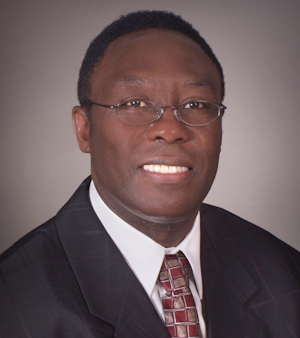 Dr. Waithaka Mwangi, PhD Dr. Waithaka Mwangi, PhDEmail |
||
 Dr. T.G. Nagaraja, BVSc, MVSc, PhD Dr. T.G. Nagaraja, BVSc, MVSc, PhDEmail
Dr. T.G. Nagaraja's research interest is in the field of gut microbiology of cattle and swine, particularly on the role of microbes in gut function and dysfunction. Currently, his laboratory is involved in the following research areas: Foodborne pathogens, such as Shiga toxin-producing Escherichia coli, Salmonella, and Campylobacter, and antimicrobial resistance of gut bacteria in cattle and swine; bacterial flora of liver abscesses, virulence factors and pathogenic mechanisms of Fusobacterium necrophorum, with the long term goal of developing an efficacious vaccine. |
||
|
Dr. Cassandra Olds' research focuses on understanding vector-pathogen-host interactions, specifically how these can be managed to reduce the negative impact of arthropod pests and their associated pathogens on animal health and well-being. |
||
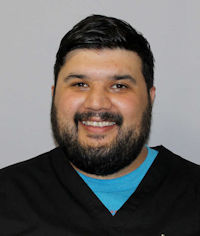 Dr. Ron Orchard, DVM, MPH Dr. Ron Orchard, DVM, MPHEmail Dr. Ron Orchard is a clinical instructor of community outreach in the Kansas State University Clinical Sciences department. His research interests include: Shelter Medicine, HQHVSN Techniques, Resource Limited Medicine, Spectrum of Care, Access to Care, Community Engagement, Qualitative Methods, Scholarship of Teaching and Learning. |
||
 Dr. Yoonseong Park, PhD Dr. Yoonseong Park, PhD Email |
||
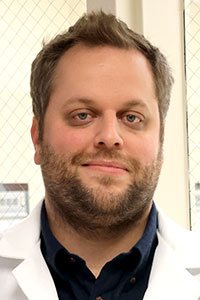 Dr. Pierre Picavet, DVM, MSc, DECVS Dr. Pierre Picavet, DVM, MSc, DECVSEmail
Dr. Pierre Picavet is a small animal orthopedic surgery specialist. |
||
 Dr. Charles Pickens, PhD Dr. Charles Pickens, PhD Email |
||
|
|
||
|
Dr. David Poole studies pulmonary gas exchange, O2 transport and muscle microcirculation in health and determining the mechanistic bases for dysfunction in chronic disease (i.e., emphysema, heart failure, diabetes) and also aging. |
||
|
Dr. Sergei Raev studies porcine infectious diseases, particularly those caused by Porcine Reproductive and Respiratory Syndrome Virus (PRRSV), Porcine Circoviruses (PCV2 and PCV3), Classical Swine Fever Virus (CSFV), Rotaviruses (RVA, RVB, RVC), and Influenza A Virus (IAV). |
||
 Dr. David Renter, DVM, PhD Dr. David Renter, DVM, PhDEmail
Dr. David Renter’s research emphasizes the application and extension of epidemiologic principles and methods to enhance health and disease management. His outcomes-based research enables valid data-driven decisions to improve animal health/well-being, food safety, production efficiency, and economic viability of health systems. |
||
 Dr. Juergen Richt, DVM, PhD Dr. Juergen Richt, DVM, PhD Email |
||
 Dr. Michael Sanderson, MS, DVM Dr. Michael Sanderson, MS, DVM Email
The broad focus of Dr. Michael Sanderson's research is the application of epidemiologic principles, analytical methods, risk assessment and simulation modeling to disease risk and facilitate decision making in beef production systems. Much of this research has focused on the epidemiology and ecology of beef safety and security particularly related to E. coli O157 and other shiga-toxin producing E. coli. His lab also studies Bovine Respiratory Disease and Foot and Mouth Disease. |
||
 Dr. Thomas Schermerhorn, VMD, DACVIM (SAIM) Dr. Thomas Schermerhorn, VMD, DACVIM (SAIM)Email |
||
 Dr. Bruce Schultz, PhD Dr. Bruce Schultz, PhDProfessor, Anatomy & Physiology |
||
 Dr. Stacey Scroggs, PhD, MPH Dr. Stacey Scroggs, PhD, MPHEmail
Dr. Stacey Scroggs studies the evolution, emergence, and control of arthropod-transmitted viruses that infect livestock, such as vesicular stomatitis virus, bluetongue virus, epizootic hemorrhagic fever virus, and West Nile virus. |
||
 Dr. Jishu Shi, DVM, MS, PhD Dr. Jishu Shi, DVM, MS, PhDEmail |
||
|
Dr. Phillip Shults studies insects, primarily biting midges, that transmit disease-causing pathogens in wildlife and livestock systems. His lab applies a broad range of next-generation molecular approaches to better understand the interactions between host, vector, and pathogen. |
||
 Dr. Kris Silver, PhD Dr. Kris Silver, PhD Email
Dr. Kris Silver researches the physiological and molecular interactions between insects and insecticides. |
||
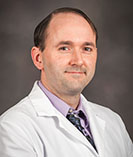 Dr. David Upchurch, DVM, MS, DACVS-SA Dr. David Upchurch, DVM, MS, DACVS-SAEmail
Dr. David Upchurch researches suture biomechanics, cutaneous marginal shrinkage and instructional methods. |
||
 Dr. Dr. Dana Vanlandingham, MS, PhD Dr. Dr. Dana Vanlandingham, MS, PhD Email |
||
 Dr. Abbie Viscardi, PhD Dr. Abbie Viscardi, PhDEmail
|
||
|
|
||
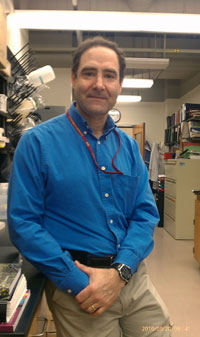 Dr. Mark Weiss, BS, PhD Dr. Mark Weiss, BS, PhD Email
Dr. Mark Weiss' research focus is on stem cell biotechnology. His lab successfully produced various stem cell lines such as rat embryonic stem cells and cells derived from umbilical chord or other tissues with the intent of using this technology to advance cellular therapy and regenerative medicine. His lab is focused upon producing promising cellular therapeutics for regenerative medicine. |
||
 Dr. Brad White, MS, DVM Dr. Brad White, MS, DVM Email |
||
 Dr. William Wilson, PhD Dr. William Wilson, PhDEmail |
||
 Dr. Anna Zinovyeva, PhD Dr. Anna Zinovyeva, PhD Email
|
 Dr. Stephanie Hall, PhD
Dr. Stephanie Hall, PhD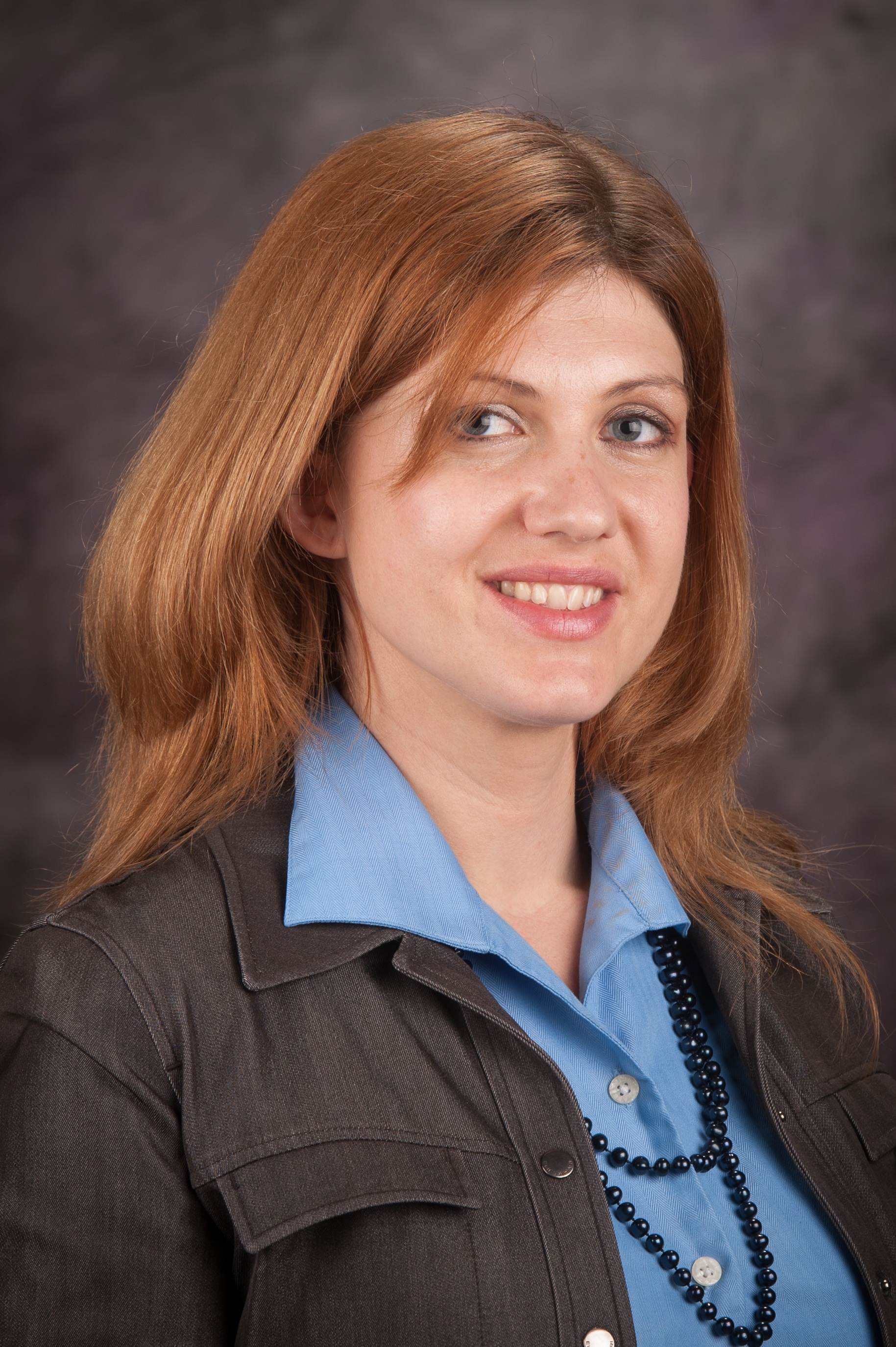 Dr. Lindsey Hulbert, BS, MS, PhD
Dr. Lindsey Hulbert, BS, MS, PhD 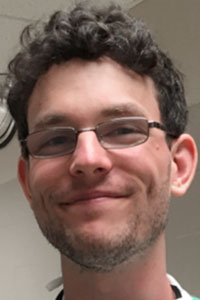 Dr. Nate Kapaldo, DVM, MPH, DACVAA
Dr. Nate Kapaldo, DVM, MPH, DACVAA Dr. Yunjeong Kim, DVM, PhD, DACVM
Dr. Yunjeong Kim, DVM, PhD, DACVM Dr. Jeremy Klingler, MS, PhD
Dr. Jeremy Klingler, MS, PhD Dr. Dylan Lutter, DVM, MS, DACVS-LA, CERP, CAC
Dr. Dylan Lutter, DVM, MS, DACVS-LA, CERP, CAC Dr. Shane Lyon, DVM, MS, DACVIM (SAIM)
Dr. Shane Lyon, DVM, MS, DACVIM (SAIM) Dr. Bethany McGregor MS, PhD
Dr. Bethany McGregor MS, PhD Dr. Kristin Michel, PhD
Dr. Kristin Michel, PhD Dr. Laura C. Miller, PhD
Dr. Laura C. Miller, PhD Dr. Tim Musch, PhD
Dr. Tim Musch, PhD Dr. Cassandra Olds, MS, PhD
Dr. Cassandra Olds, MS, PhD Dr. Roman Pogranichniy, MS, DVM, PhD
Dr. Roman Pogranichniy, MS, DVM, PhD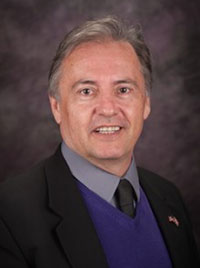 Dr. David Poole, MS, PhD
Dr. David Poole, MS, PhD  Dr. Sergei Raev, DVM, PhD
Dr. Sergei Raev, DVM, PhD 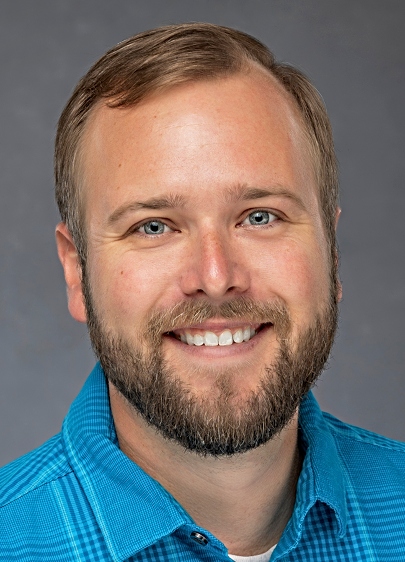 Dr. Phillip Shults, PhD
Dr. Phillip Shults, PhD Dr. Lihua Wang, MD, PhD
Dr. Lihua Wang, MD, PhD